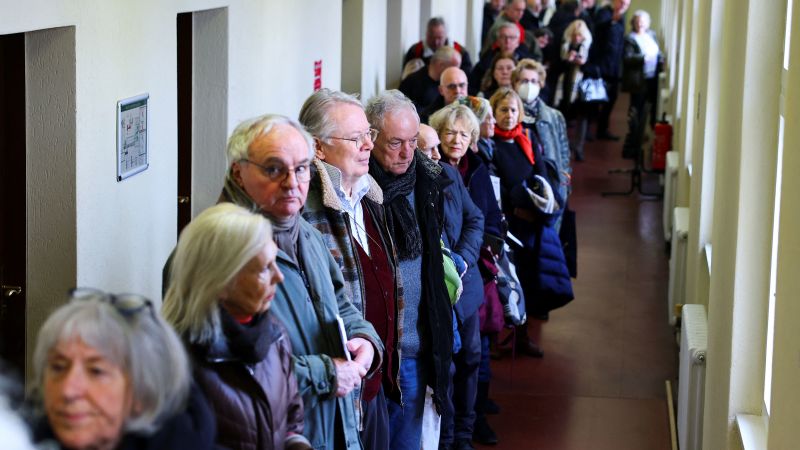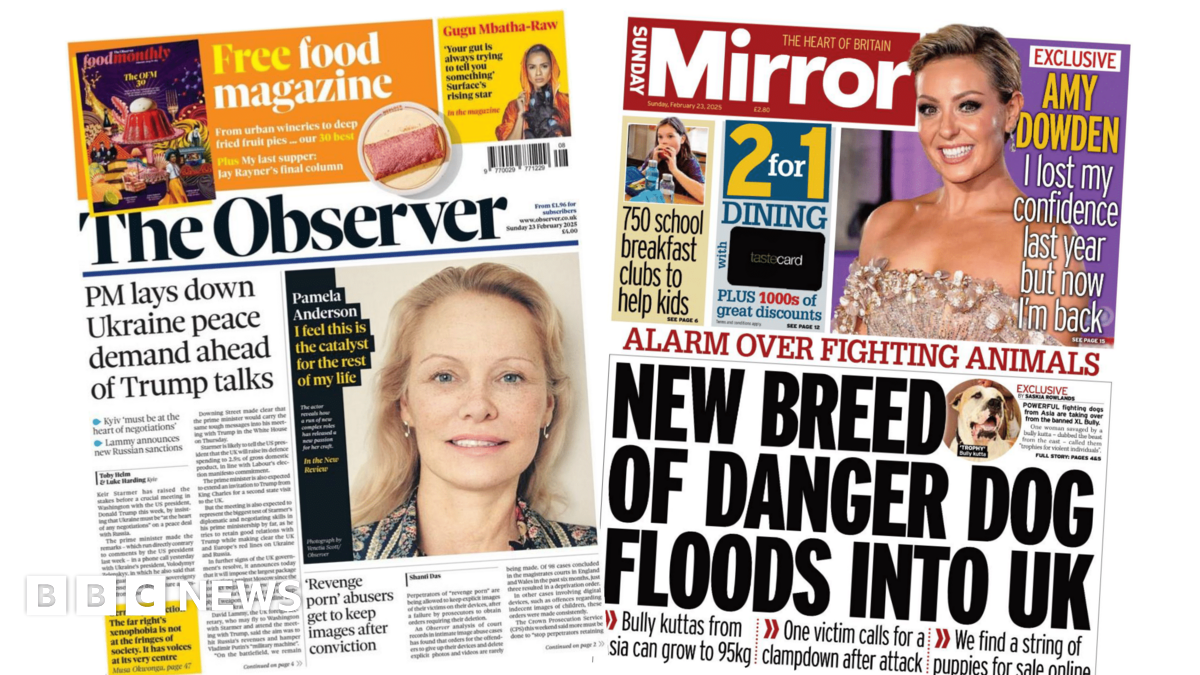Germany's National Election: A Deep Dive Into The Candidates And Platforms

Table of Contents
Germany's National Election: A Deep Dive into the Candidates and Platforms
BERLIN – Germany’s 2021 federal election, held on September 26th, saw a dramatic shift in the country's political landscape. While Angela Merkel's era as Chancellor came to a close after 16 years, the election yielded a complex coalition government rather than a clear victor. This article delves into the key candidates, their platforms, and the ultimate outcome, providing a comprehensive overview of this pivotal moment in German politics.
The Leading Contenders and Their Platforms:
The election primarily centered around three major contenders: Armin Laschet (CDU/CSU), Olaf Scholz (SPD), and Annalena Baerbock (Bündnis 90/Die Grünen).
-
Armin Laschet (CDU/CSU): Laschet, the candidate for the conservative Christian Democratic Union (CDU) and its Bavarian sister party, the Christian Social Union (CSU), campaigned on a platform of fiscal responsibility, economic stability, and a moderate approach to European integration. He emphasized maintaining a strong transatlantic relationship with the United States while navigating the complexities of the European Union. However, Laschet’s campaign was plagued by perceived gaffes and a lack of decisive leadership, ultimately hindering his chances. His platform included targeted tax cuts, investment in infrastructure, and a cautious approach to further European integration. He also highlighted the need for effective management of the COVID-19 pandemic and a strong German economy.
-
Olaf Scholz (SPD): The Social Democratic Party (SPD) candidate, Olaf Scholz, presented himself as a steady and experienced hand. His campaign focused on social justice, economic modernization, and strengthening social safety nets. Scholz, then the current Vice-Chancellor and Finance Minister, benefited from the public's perception of his competence and stability during the pandemic. His platform included substantial investments in digital infrastructure, climate action through incentives and regulations, and strengthening the social welfare system. He pledged continued support for the European Union and a balanced approach to international relations.
-
Annalena Baerbock (Bündnis 90/Die Grünen): Annalena Baerbock, representing the Green Party (Bündnis 90/Die Grünen), offered a progressive agenda prioritizing climate action, social justice, and a more assertive foreign policy. Her campaign focused on ambitious climate targets, including a rapid phase-out of coal power, and a significant increase in renewable energy. She advocated for greater social equality and a more active role for Germany in the European Union and international affairs. However, her campaign faced criticism over inconsistencies in her CV and a perceived lack of political experience at the national level.
The Election Results and Coalition Formation:
The election resulted in a fragmented parliament, with no single party securing a majority. The SPD emerged as the largest party, but with only a plurality of the votes. This necessitated the formation of a coalition government. After protracted negotiations, the SPD, the Greens, and the Free Democratic Party (FDP) formed a three-party coalition government, known as the "traffic light coalition" (Ampelkoalition) due to the parties' respective colors (red-SPD, green-Greens, yellow-FDP).
The "Traffic Light" Coalition and its Agenda:
The coalition agreement, reached in November 2021, outlines ambitious goals in several key areas:
- Climate Change: A significant increase in renewable energy sources, a faster coal phase-out, and investments in climate protection measures.
- Economic Policy: Investments in digital infrastructure, education, and research, along with a focus on sustainable economic growth.
- Social Policy: Strengthening social security, raising the minimum wage, and promoting affordable housing.
- Foreign Policy: A more assertive role for Germany in the European Union and a commitment to multilateralism.
The Long-Term Implications:
The 2021 German federal election marked a turning point in German politics, ushering in a new era of coalition governance and emphasizing the increasing importance of climate change and social justice in the national agenda. The success of the "traffic light" coalition in implementing its ambitious program will be crucial in shaping Germany's future and its role in Europe and the world. The election also demonstrated the rise of the Green Party as a significant political force, reflecting a growing societal concern about climate change and environmental issues. The long-term implications of this election will continue to unfold as the new government navigates the challenges and opportunities ahead.

Featured Posts
-
 Pope Francis Condition Remains Critical After Peaceful Night
Feb 24, 2025
Pope Francis Condition Remains Critical After Peaceful Night
Feb 24, 2025 -
 Joseph Parker Knocks Down Bakole Retains Wbo Belt
Feb 24, 2025
Joseph Parker Knocks Down Bakole Retains Wbo Belt
Feb 24, 2025 -
 Viral Video Doctor Highlights 2025s Worsening Insurance Landscape
Feb 24, 2025
Viral Video Doctor Highlights 2025s Worsening Insurance Landscape
Feb 24, 2025 -
 Premier League Matchday 26 Southampton And Brighton Clash
Feb 24, 2025
Premier League Matchday 26 Southampton And Brighton Clash
Feb 24, 2025 -
 Chelsea Aston Villa 2025 Premier League Match Odds Comparison And Predictions
Feb 24, 2025
Chelsea Aston Villa 2025 Premier League Match Odds Comparison And Predictions
Feb 24, 2025
Latest Posts
-
 Trumps Actions At The Pentagon Implications For Us Military Leadership
Feb 24, 2025
Trumps Actions At The Pentagon Implications For Us Military Leadership
Feb 24, 2025 -
 Danger Dog Breeds Growing Concerns For Public Safety
Feb 24, 2025
Danger Dog Breeds Growing Concerns For Public Safety
Feb 24, 2025 -
 Viral Video Doctor Highlights 2025s Worsening Insurance Landscape
Feb 24, 2025
Viral Video Doctor Highlights 2025s Worsening Insurance Landscape
Feb 24, 2025 -
 Us Federal Employees Ordered To Document Work Or Face Resignation Doges Email Reveals
Feb 24, 2025
Us Federal Employees Ordered To Document Work Or Face Resignation Doges Email Reveals
Feb 24, 2025 -
 2025 Insurance Hikes Doctors Video Sparks Outrage
Feb 24, 2025
2025 Insurance Hikes Doctors Video Sparks Outrage
Feb 24, 2025
